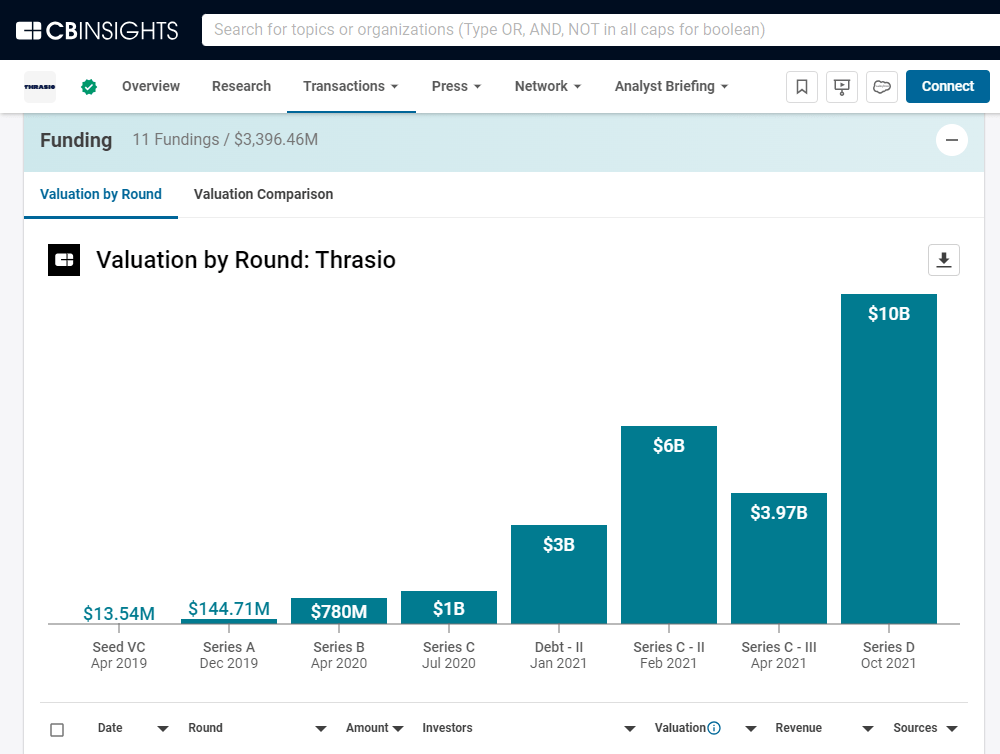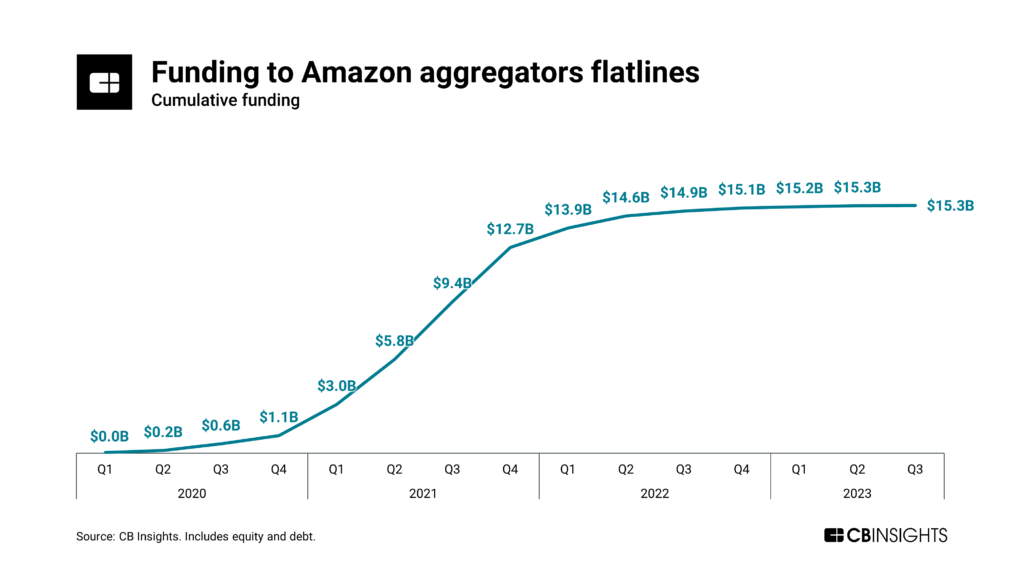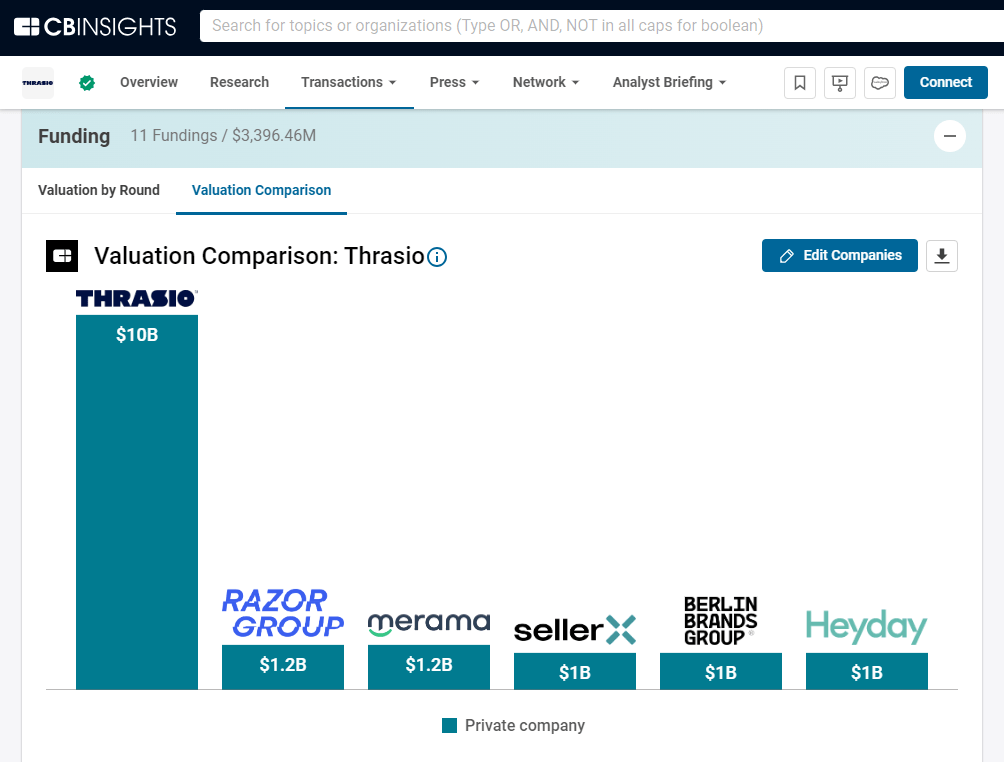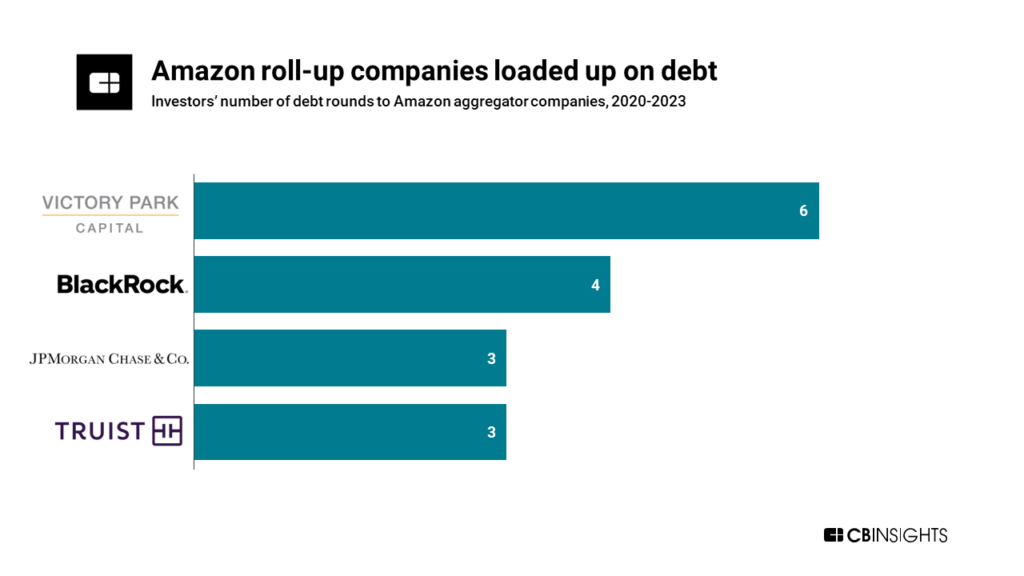We dive into Thrasio’s rise and fall and the outlook for the Amazon aggregator sector at large.
Thrasio is preparing to file for bankruptcy.
Last valued at $10B in October 2021, it was the biggest and most valuable of the Amazon aggregators — companies that roll up (acquire and aim to grow) brands that sell on Amazon and other online marketplaces.
In total, per CB Insights, these aggregators have raised $15.3B in equity and debt, led by Thrasio’s $3.4B.
Thrasio’s backers include top-tier players in the asset management/PE world such as:
- Advent International
- BlackRock
- Silver Lake
- Oaktree Asset Management
- Goldman Sachs Asset Management
Funding boomed in 2021 and flatlined as the model came into question.
Once the Amazon aggregator play got hot, a mix of equity and debt providers piled in funding regional or Thrasio copycats.
Most of Thrasio’s comps are valued much lower.
The aggregators also leaned on debt to help them acquire new brands. Providers like Victory Park Capital, Blackrock, JPM Chase, and Truist are most exposed.
Capital is drying up for companies in the space amid slowing e-commerce growth. And even with economies of scale from several brands, it has proven difficult for aggregators to turn a profit. It remains to be seen if the remaining marketplace aggregator players can build a sustainable model.
Other aggregators are eyeing consolidation. SellerX acquired aggregator Elevated Brands in May 2023, while Suma Brands merged with D1 Group in the same month.
And some players are diversifying away from Amazon — Forum Brands, for example, also acquires brands operating direct-to-consumer (D2C) or on digital marketplaces like Walmart. Meanwhile, OpenStore, co-founded by Keith Rabois, is buying Shopify stores.
Of course, Thrasio’s failure remains notable given its size. Bentiago, which filed for bankruptcy in August — just 2 years after raising $325M — suggests more aggregator failures may be on the horizon.
If you aren’t already a client, sign up for a free trial to learn more about our platform.



